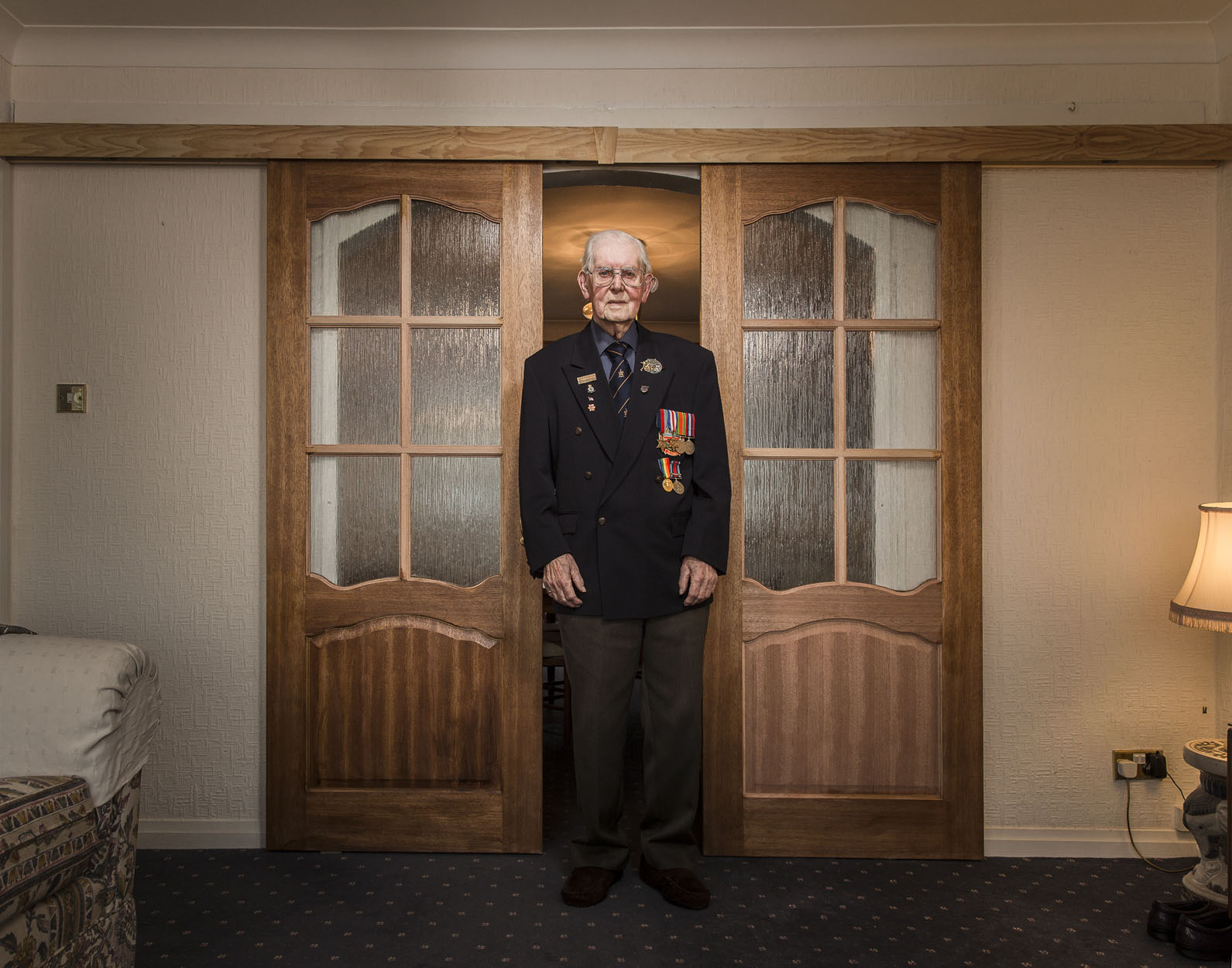My name is Alistair Cormack. I was born on the 2nd of March, 1921. My parents had a hair saloon, and they were both hairdressers. When my father died I was only eleven years old, so it was very difficult growing up until I joined the RAF in 1940. The war had begun already in 1939, but I was part of a new regiment of defense for aerial fair fields. We all had wanted to join the Scottish regiment but since we weren't allowed to do that we had to make our own way. So I volunteered for the RAF, one of two other highland divisions. I went to Blackpool for training and progressed from there. I was made a corporal a couple of years after and then a sergeant following that. I first got my training on aircraft guns; all sorts of different ones like Brownings. I even finished training on charging up a Borfor 40 mm gun and taking down an aircraft - enemy of course. So when I went into action, real action, I landed in Normandy and fought there for about three months, from June to about August.
When the war had first started I was attending a cycling event. I was a member of the cycling club and we would always compete on Sundays. We had just finished a race that day when it was announced that Chamberlain had been in Germany. He was there for some sort of peacemaking, or whatever you may call it, and that was when the war was declared. So we left Aberdeen to go to Blackpool for training. We were all spread out between villages, houses, and small hotels. We were there for about three weeks and we did all of our training on the promenade. It was basic training, marching up and down, training on different weapons, and this sort of thing. That was the whole purpose of the training, nothing very serious at that point until RAF regiments were formed.
Our RAF regiments were formed when Churchill suggested that Britain have a defense of its own and leave professional soldiers to do the job that they were employed for, rather than hang around the air force. So there were a whole lot of regiments made up, and each squadron had 180 members as far as I can recollect. They compiled these regiments with what you could call volunteers. "You, you, and you" they'd say, until 180 of us were picked. We were allocated to an airfield in Mid England near Nottingham. We took various training courses like commando, jumping off of boats, and that sort of thing. It was always leading to something that would be useful when we went into action.
During the evacuation at Dunkirk a lot of soldiers lost their lives. There were actually fleets that saved a lot of lives though; they were small sailing crafts leaving from the South of England. They came and rescued them. So after this a rumor started that the Germans would move over the tunnel and invade Britain. The rumors never materialized, but we still made preparations to return to France.
We had a lot of false alarms before we actually went into action in Normandy. Everything was done under a certain amount of secrecy. You didn't know everything that was going on until you learned it was real and near. We knew something was going to happen, but nobody knew exactly what. We soon discovered that we would be leaving soon. We didn't know which exact day; some thought it to be the 5th while others thought it to be the 6th. So when we left Southampton we left in a tunnel of convoy vessels all the way to Normandy, and we came into contact with E-boats from Germany. We bombed a couple of their boats and a couple of their aircraft. And they sunk one of ours. We had three different crafts: 45, 46 and 47. I think it was number 46 that was sunk. The LCT that I was on was bombed, destroying our landing gear for the ramps. So when we first got close to the beaches we didn't go right in because we couldn't. We had to go through maybe two feet of seaweed to make our way onto the beach. All of the landings were prepared for water so they had to be dismantled on shore. Our engines were sealed off also as a temporary measure until we were on shore. A few of our members were killed. There were more that lost their lives as well, all buried at sea. I hear there was a memorial service for them. One of my colleagues I kept in touch with from England told me about it.
After Normandy we went up into Belgium, then Holland, and then finally to a place called Eindhoven. We were based there until the war ended. In Eindhoven we were defending an airfield once when a supplies raid was made. Our gun placement was credited for taking one of the two aircrafts down. Unfortunately, one of our chaps was killed in the raid. There was quite a few others killed along the airfields but only one in our particular squad. But that's how it all finished off. The war was finished. I forgot the actual date of termination, but there was a lot of celebration during that time.
